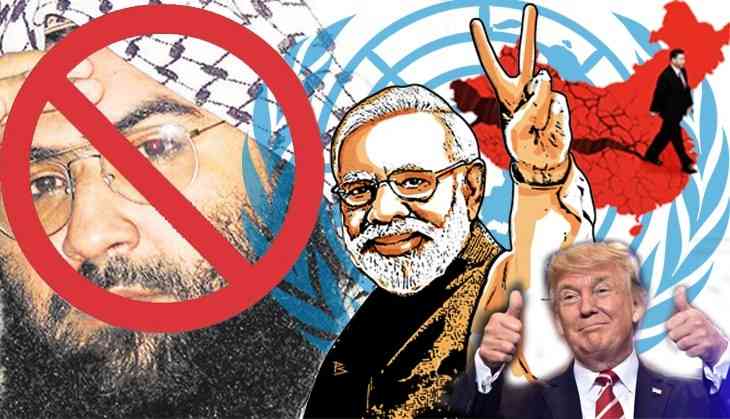
The United Nations designation of the Jaish-e-Mohammed leader Masood Azhar as a terrorist is a significant gain for Indian diplomacy.
This is not because the step will lead to Pakistan giving up its hostility towards India or abandoning the use of terrorism despite its economic stresses but because it once again exposes its role as the sponsor of religious extremist terror. Even more, it shows that India has the stamina to pursue diplomatic objectives: it took a decade and changing strategies to make China lift its technical hold which had protected Azhar.
The sequence of events in the United Nations after the Pulwama attack on the Azhar issue is instructive. The major powers led by the United States comprehended India’s justifiable anger at the single largest terrorist strike against the security forces in the last three decades in Kashmir. It was owned up by the Jaish-e-Mohammed but Pakistan refused to act seriously.
The US tried to assuage Indian anger through an unprecedented Security Council statement condemning the Pulwama attack. China held it up for six days but finally relented to combined sentiment of the rest of the fourteen members of Council. At this stage the US and other powers still waited for India’s response to the Pulwama attack.
The diplomatic and international security context changed once India used the air force to strike a terrorist base at Balakot in Pakistan. Significantly, this action marked an upgradation of the kinetic step undertaken through the strategic strikes after the Uri attack in September 2016. Unlike the past when India only used diplomacy and domestic political management to respond to large Pakistani terrorist attacks, including after the Mumbai 26/11 strike, it had taken the battle to Pakistani territory on two successive occasions.
After the Balakot attack, the Pakistani counter and the release of Wing Commander Abhinandan Varthaman, the US and other major powers realised that they had to send a clear signal to Pakistan that its continuing support of terror against India through groups such as the Jaish-e-Mohammed was dangerous. Hence, they moved the Security Council’s 1267 committee to designate Masood Azhar as a terrorist.
As in the past, so in this case too, China blocked the move on March 13. However, unlike the past when the US had let China’s block stand it now threatened to move the issue to the Security Council from the confines of the committee. China prevaricated and publicly expressed anger but realised that in an open Council debate it would have been embarrassingly isolated. Under President Xi Jinping China is willing to stand alone to defend its interests and it has vital interests in Pakistan but it obviously did not want its double standards on terrorism to be exposed.
On April 23 China signalled that it will lift the hold in the 1267 committee. Complex negotiations between the US and China followed including on the date of Azhar’s listing. It is believed that Pakistan wanted it to take place after the elections lest it give an advantage to the BJP. In the end China agreed to Azhar’s designation on May 1.
For India the major take-away from the Azhar designation is that international pressure will now be on Pakistan to prevent terrorist attacks for they constitute unacceptable provocation and escalation between countries with nuclear weapons. Earlier, the pressure was on India to exercise restraint following a terror strike. Indian diplomacy should now use this opening to ensure that economic pressure is maintained through the FATF and other mechanisms.
Apart from the objective of preventing escalation the US would want diplomatic quid-pro-quos—on the Iran issue for instance-- for its role in the Azhar designation. India can successfully navigate through these demands.


